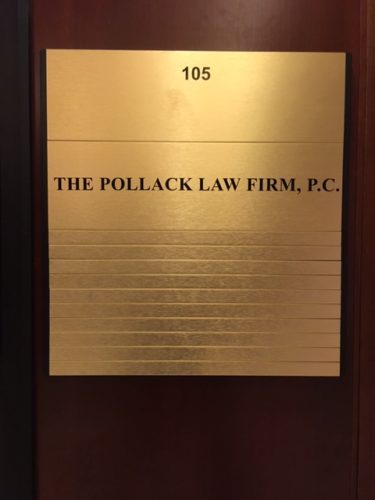FINANCIAL DISCOVERY AND DISCLOSURE IN DIVORCE AND SEPARATIONS IN NEW YORK

One may believe that people who are married to one and other for any length of time, especially long term marriages, would know everything there is to know about the income, financial assets, debts and general liabilities of their spouse. That belief as it turns out, is generally incorrect. Even though parties may have filed joint tax returns for their entire marriage and are joint owners of bank accounts and other investments, for one to rely on these basic facts as being the totality of the nature and extent of the other spouse’s financial situation, and then settle a divorce or enter into a separation agreement on this narrow scope basis, could turn out to be a huge mistake. This is where and why each party’s rights under the rules applicable to “financial discovery” also known as “financial disclosure” become crucial.
Under the divorce statutes in New York State, either spouse has the right to “discover” virtually any financial document or piece of information about the other spouse going all the way back to the day the parties were married, and even prior to that date, and the limit is basically, limitless! In practical terms, unless there are red flags indicating that there may be reasons to demand financial documents from the other spouse prior to five years before the divorce action was commenced, generally, attorneys at least start with a look back period of five years. Demands for discovery documents are ordinarily made by one attorney serving a formal “Demand for Discovery and Inspection” on the other spouse’s attorney. That demand is comprised of a list of demands for items such as bank account statements, credit card statements, employment records, employment contracts, resumes, leases, titles of cars, deeds, copies of passports, loan applications, etc. If the other spouse owns a business or is otherwise self-employed, then the scope of the financial documents expands to include business records and related documents as well. The attorney serves this demand on the other attorney and then that attorney has at minimum, 20 days to “produce” the requested documents and things and serve them on the attorney who demanded them. This is a reciprocal right; both parties may serve a demand for discovery on the other spouse.
When divorces or the process leading to a separation agreement begin, and almost always before discovery demands as described above are served, the parties, as the first most basic form of financial discovery, each prepare their respective “Statement of Net Worth,” which is a Court promulgated financial form which requests information about family background, monthly expenses, income from all sources, assets and liabilities. This document is about 22 pages long and is generic in nature, so much of what it asks for is usually not applicable to most people. But once each party completes his or her Statement of Net Worth, it must be sworn to and signed before a Notary Public. Accordingly, a Statement of Net Worth is actually a sworn affidavit, sworn to under the penalties of perjury if the party lies or purposely fails to disclose certain information. The attorneys then exchange their clients’ respective Statements of Net Worth and many times then, settlement discussions start. Note that the completion and exchanges of Statements of Net Worth between the parties must occur whether or not a case actually goes to Court. So even in cases which are resolved through divorce mediation, parties complete and exchange Statements of Net Worth with each other through the mediator. In the case of a contested divorce that proceeds to Court, the Statements of Net Worth are filed with the Clerk and the assigned Justice receives it for his or her case file.
Documents received as responses to discovery demands as well as Statements of Net Worth, usually give rise to many questions to be explored, not only as to the document itself, but also what the document’s significance is to the case, what other documents could that document lead to be discovered, whether the document is genuine or was produced to throw the other side off track or hide something, etc. Sometimes attorneys will remark that the document, “raises more questions than it answers.” This conclusion usually leads to “depositions”, otherwise known as “examinations before trial” or “EBTs.” Depositions are another form of financial discovery authorized by the laws of the State of New York and simply stated, involve one party being subjected to answer questions by the other side’s attorney about documents and other matters of a financial nature, under oath, while a Court reporter records the ensuing dialogue between the attorney and the adverse party. Our next blog post will be focused on the purpose, use and process of depositions; so stay tuned!
The Pollack Law Firm, P.C., serving clients in Nassau and Suffolk County for more than 22 years, is always available to assist and represent parties in divorce, separation and all other matrimonial and family law matters. Please call today to schedule a free consultation: (516) 938-3330.
DISCLAIMER: This article is intended to provide only general information for entertainment purposes and should never be relied upon as legal advice. One should seek the assistance of experienced matrimonial counsel to assist in explaining the law, options and making important decisions in any divorce, matrimonial or any family law matter. By reading this article, no attorney/client relationship arises in any manner whatsoever
